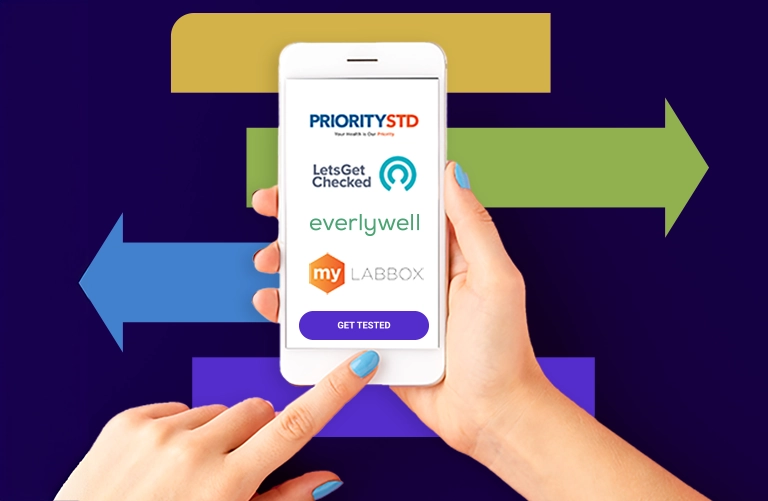Understanding Hepatitis C: Symptoms, Testing & Treatment
Understanding Hepatitis C: Symptoms, Testing & Treatment
Hepatitis C is caused by a virus and is considered the most common chronic bloodborne infection in the United States. Learn more about this STD, what symptoms it may cause, how it can affect the body, testing procedures, and available treatment options.
Get Tested for Hepatitis B
ABOUT HEPATITIS C
What Is Hepatitis C And How Does It Affect Your Body?
ABOUT HEPATITIS C
What Is Hepatitis C And How Does It Affect Your Body?
Because hepatitis C is a bloodborne infection, this virus is not transmitted easily through sex, but it doesn’t mean it’s impossible, especially in those who may also be infected with HIV. More likely, hepatitis C is spread through contact with the blood of an infected person, whether through shared drug-injection equipment, birth, working as a healthcare professional, sexual contact, unregulated tattoos or piercings, sharing personal items that have been exposed to blood, and blood transfusions and organ transplants.
Hepatitis C can result in two different types of infection; acute infection that lasts for only a few weeks, or chronic hepatitis C which is a serious, lifelong illness.
Acute infection often takes place within 6 months after exposure and can lead to chronic infection. While the infection may not result in any symptoms, acute hepatitis C could cause:
- Yellowing of the skin or eyes
- No desire to eat
- Upset stomach
- Vomiting
- Stomach pain
- Fever
- Dark urine
- Light-colored stool
- Joint pain
- Feeling tired
Individuals with chronic hepatitis C may have no symptoms, or experience general ones such as chronic fatigue and depression. Many of those with chronic illness develop chronic liver disease.
Sources: CDC Sexually Transmitted Infections Treatment Guidelines, 2021, Hepatitis C Virus (HCV) Infection and CDC – Hepatitis C Overview and Statistics
HEPATITIS C TESTING INFORMATION
What To Know About Hepatitis C Testing
A simple blood test, otherwise called an HCV antibody test or anti-HCV test, is all that is required to determine whether or not you have hepatitis C. The lab is specifically looking for the presence of antibodies to the hepatitis C virus within the blood.
Sources: CDC – Hepatitis C Testing
Depending on the lab facility, test results can come back within a few days or a few weeks. Some clinics may also offer rapid anti-HCV tests that can offer results in as little as 20 to 30 minutes.
Source: CDC – Hepatitis C Testing
Whether you are diagnosed with acute or chronic hepatitis C, treatment is recommended and available for all. Currently, treatment involves 8 – 12 weeks of pills that can cure over 90% of the infection with minimal side effects.
People with chronic hepatitis C and those who have cirrhosis from the infection should receive regular monitoring by their doctor as other complications are still possible, such as advanced liver disease and liver cancer. It’s also recommended to follow healthy lifestyle habits, such as avoiding alcohol, verifying any medications or supplements are safe, and regularly testing for HIV.
Unfortunately, there is not a vaccine to prevent hepatitis C infection like there is for hepatitis B. The only way to stay safe from hepatitis C is to avoid any blood-to-blood contact with an infected individual.
- Everyone age 18 and older
- All pregnant women
- Those with HIV
- Anyone who has ever injected drugs and shared needles, syringes, or other drug preparation equipment
- Recipients of transfusions or organ transplants
- Others, as instructed by a medical professional